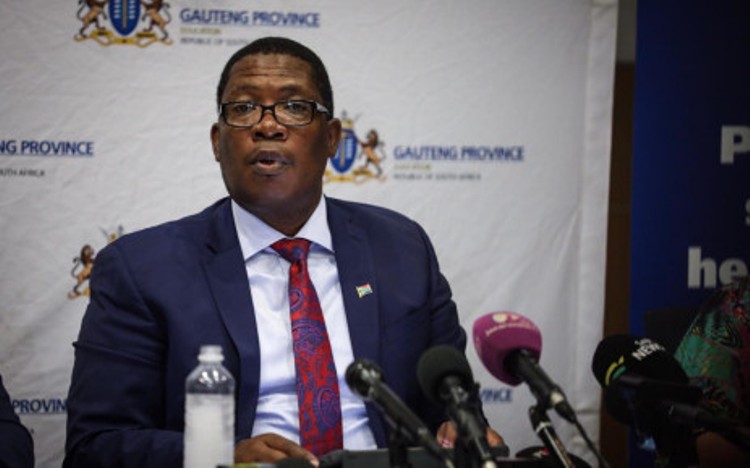Gauteng Premier Panyaza Lesufi Unveils Over 30 Forensic Reports in Anti-Corruption Drive
“Corruption remains one of South Africa’s most urgent challenges, undermining effective governance and sustainable progress,” Premier Lesufi stated.

- Country:
- South Africa
Gauteng Premier Panyaza Lesufi has publicly released the findings of more than 30 forensic investigation reports probing various provincial departments, reinforcing the Gauteng Provincial Government’s (GPG) unwavering commitment to transparency, accountability, and the eradication of corruption and maladministration.
This announcement follows the earlier release in June of 47 forensic reports, a move Premier Lesufi described as a firm demonstration of the province’s dedication to ethical governance and sustainable development.
Tackling Corruption Head-On
“Corruption remains one of South Africa’s most urgent challenges, undermining effective governance and sustainable progress,” Premier Lesufi stated. “While Gauteng is not immune to this problem, our province continues to demonstrate a resolute commitment to fighting corruption through proactive interventions, institutional reforms, and strengthened accountability mechanisms.”
The forensic reports, which span numerous provincial departments, form part of the GPG’s G-13 priorities for its seventh administration. Central to these priorities are the principles of combating corruption, promoting transparency, and fostering openness—considered critical to restoring public confidence and ensuring ethical governance.
Comprehensive Findings and Action Plans
The released reports outline significant irregularities, maladministration, and corrupt activities within the affected departments. In response, provincial authorities are actively implementing a series of stringent recommendations designed to address systemic weaknesses and hold perpetrators accountable.
Key remedial measures include:
-
Disciplinary Proceedings: Departments are initiating disciplinary action against implicated employees to address misconduct swiftly and fairly.
-
Strengthening Internal Controls: Steps are underway to reinforce weak or compromised internal control systems, minimizing vulnerabilities that enable corruption.
-
Criminal Prosecutions: Relevant cases are being referred to the South African Police Service (SAPS) for criminal investigation and prosecution.
-
Financial Recovery: Departments are pursuing damages from responsible individuals through the Fruitless and Wasteful Expenditure Framework, aiming to recoup losses incurred through corrupt or wasteful conduct.
-
Civil Claims: In accordance with the Prescription Act 68 of 1969, civil claims are being filed within the stipulated timeframes to recover financial damages.
-
Blacklisting Dishonest Service Providers: Consistent with supply chain management regulations, service providers involved in unlawful activities are being blacklisted to prevent future contracts with the provincial government.
Safeguarding the Integrity of Legal Processes
The Office of the Premier is closely monitoring the implementation of these recommendations, ensuring that actions taken align with both legal and procedural requirements. Premier Lesufi emphasized the importance of timing in releasing such sensitive reports.
“We will not release reports prematurely if doing so could compromise legal proceedings or the enforcement of recommendations,” he explained. Premature disclosure, he noted, could disrupt ongoing investigations, undermine legal processes, or place whistleblowers’ safety at risk.
Commitment to Protecting Whistleblowers
Protecting whistleblowers is a cornerstone of Gauteng’s anti-corruption strategy. These individuals risk personal safety to expose corruption and abuse of power, playing a vital role in promoting transparency and justice.
“We are committed to safeguarding whistleblowers’ identities and wellbeing throughout these processes,” said Lesufi. “Their courage and integrity help to ensure accountability and ethical governance within our public institutions.”
Transparency and Public Access
Once the State Law Advisory Services completes the redaction of personal and sensitive information, the forensic reports will be made accessible to the public, enabling citizens to engage with and scrutinize government efforts to combat corruption.
Premier Lesufi views this transparency as essential to rebuilding trust between the provincial government and its citizens, fostering a culture of openness where governance is conducted with integrity.
Looking Ahead: Sustaining the Fight Against Corruption
The release of these reports marks a significant milestone in Gauteng’s ongoing campaign to root out corruption and maladministration. However, Premier Lesufi acknowledges that sustained vigilance and continuous improvement of governance practices are essential to ensure lasting change.
He called upon all public servants, oversight bodies, and citizens to remain committed to ethical conduct, cooperation, and accountability.
“Our province’s future depends on a transparent government that serves its people honestly and efficiently,” he concluded. “Together, we can build a Gauteng where corruption is no longer tolerated and where public trust is fully restored.”










